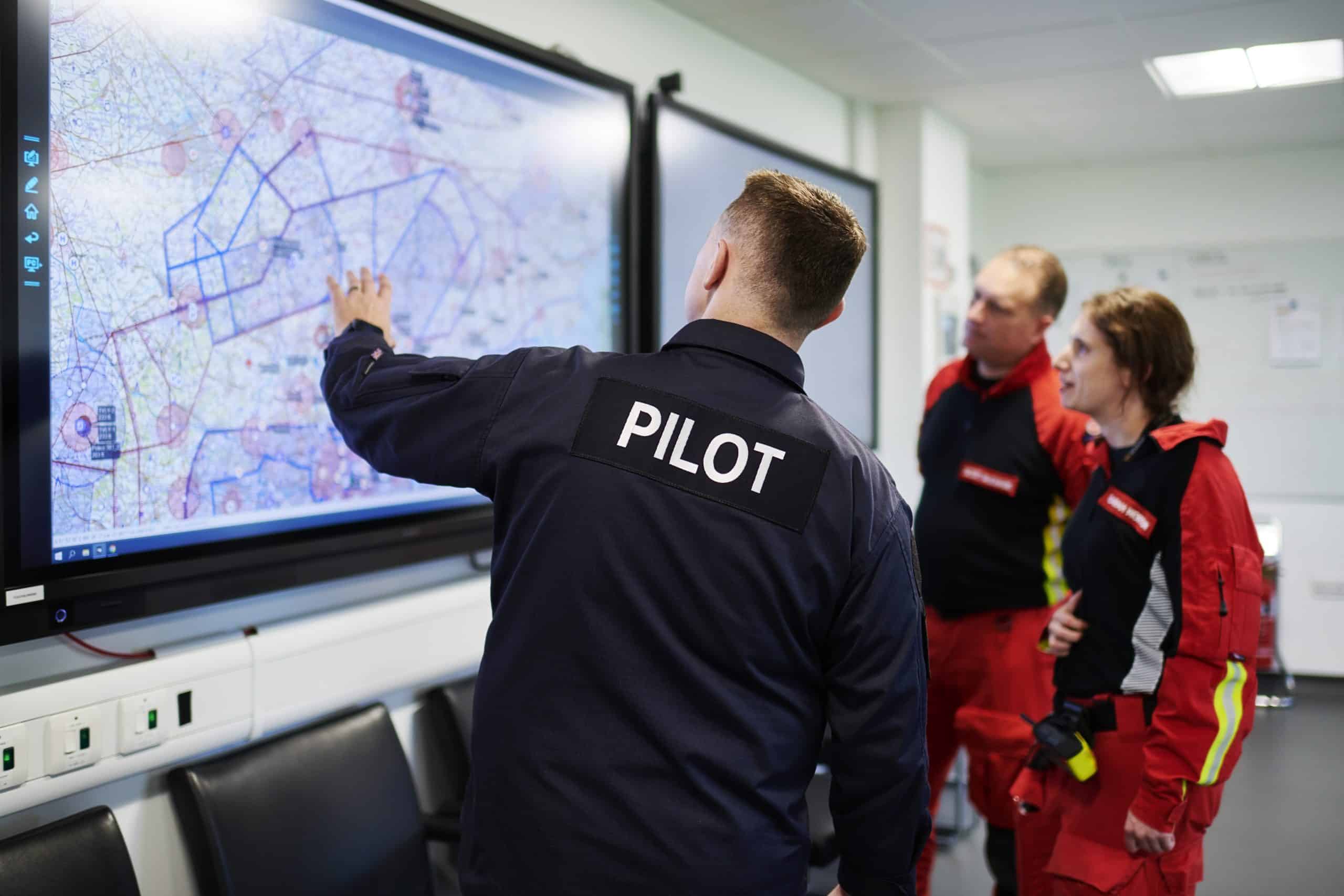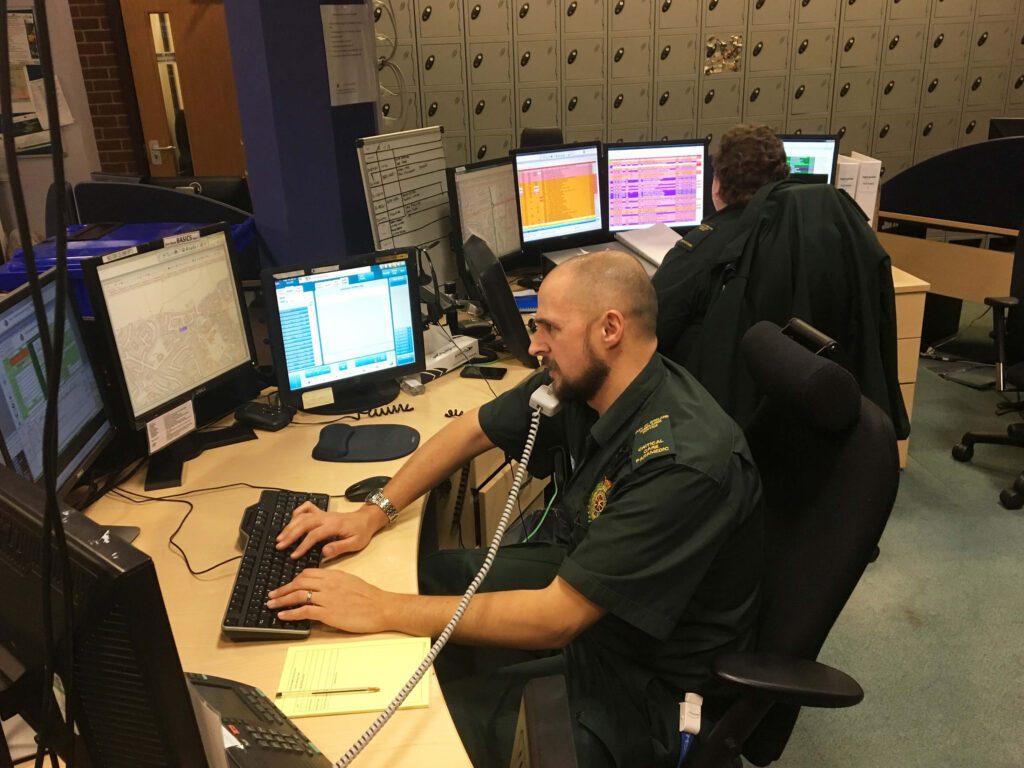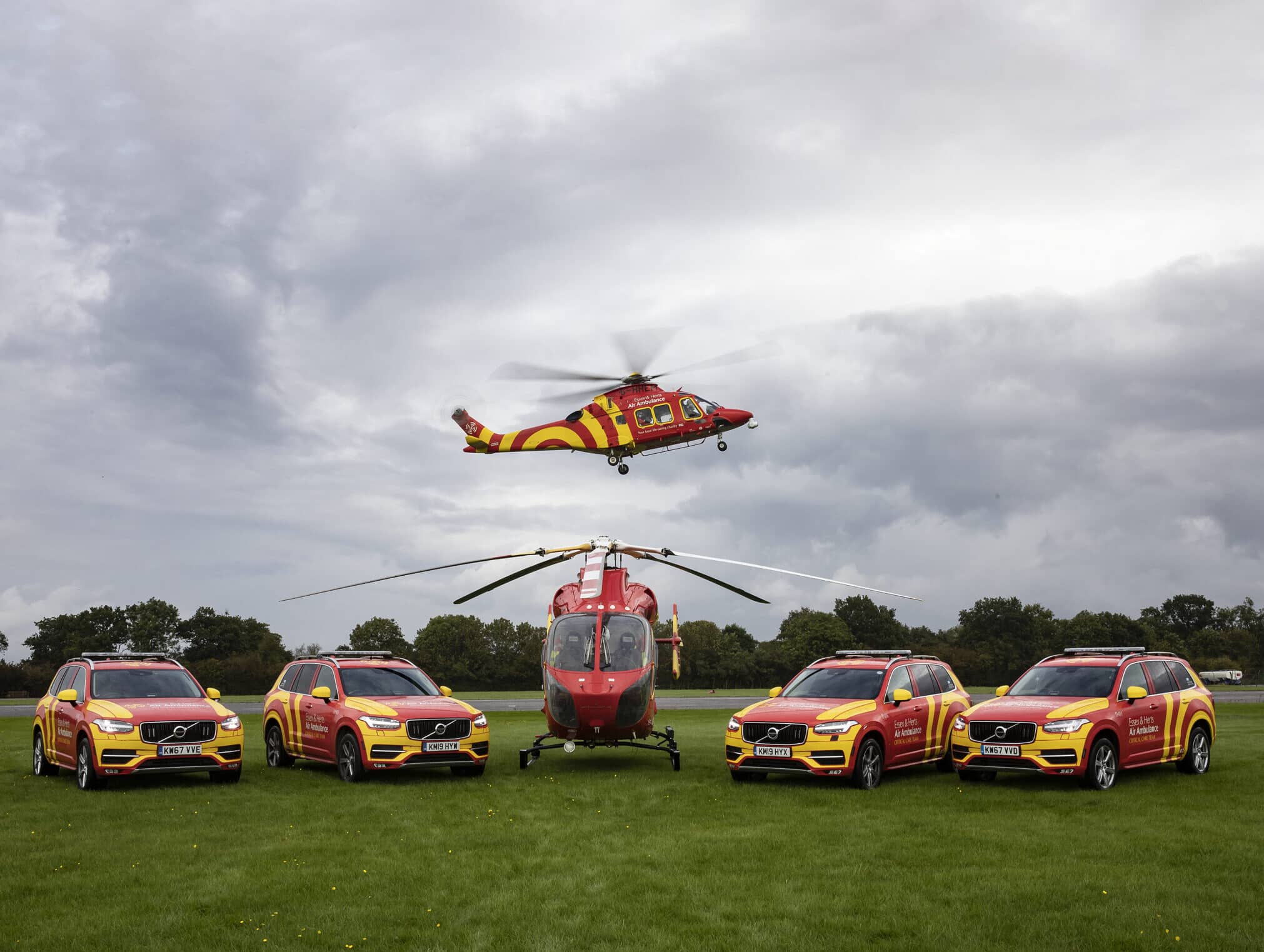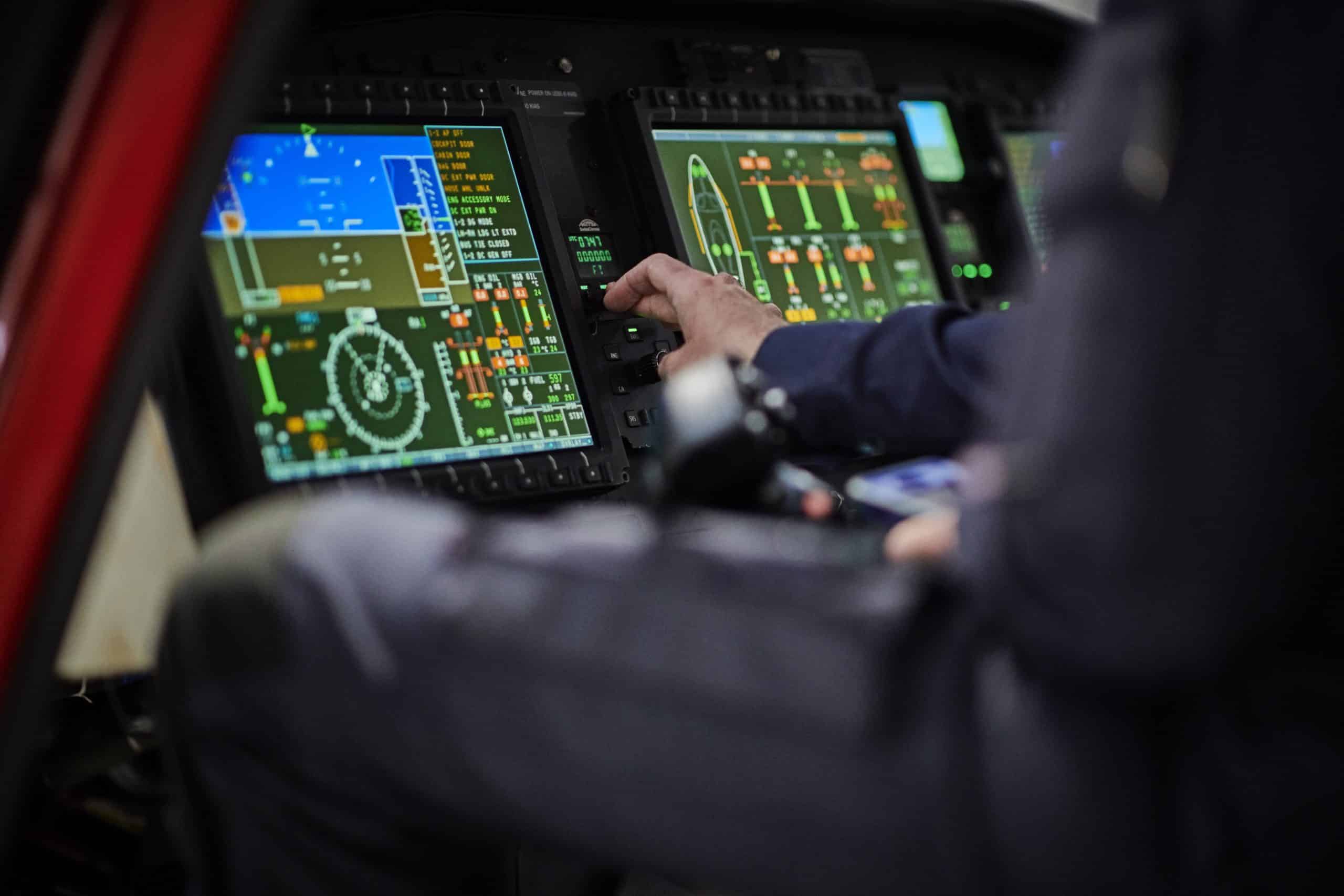How we’re dispatched
With a fleet of helicopters and rapid response vehicles (RRVs), we’re available 24-7 to reach people in need across Essex and Hertfordshire.

How we’re dispatched
Essex & Herts Air Ambulance brings the hospital to the patient, and on average, our critical care teams are dispatched six times per day. Our highly skilled crews consist of a pilot, a co-pilot, a pre-hospital care doctor and a critical care paramedic, enabling life-saving procedures to start at the earliest opportunity.
How are we activated?
We are activated by the East of England Ambulance Service NHS Trust (EEAST), which covers Essex, Hertfordshire, Bedfordshire, Suffolk, Cambridgeshire and Norfolk.
999 calls come in from across the region and are answered and triaged by call takers. At the same time, they get assessed by a critical care paramedic and a dedicated dispatcher working together on the critical care desk based in the EEAST emergency operation centre in Chelmsford. They are looking for any call that a pre-hospital critical care team can make a difference to.
On occasion, neighbouring ambulance services may request EHAAT attendance for mutual support through the critical care desk. This request could be to assist at large-scale incidents or due to the unavailability of the local critical care team.
EHAAT’s critical care team is routinely activated in one of three ways. You can learn more about this below.

Critical Care Team Dispatch Process
Our rapid response
The MD902 Explorer based at Earls Colne can reach the farthest point in Essex in less than 20 minutes, and the AW169 based at North Weald can reach the farthest point in Hertfordshire in less than 15 minutes. The team switch to using a rapid response vehicle (RRV) before sunrise, after sunset or when the helicopter is unable to fly because of poor weather or maintenance.


Every second counts…
The helicopters and RRVs enable our crew to reach patients with serious illness or injury caused by such incidents as traffic collisions, falls from height, heart attacks, stabbings, cardiac arrests and strokes. Once a patient is stabilised, the critical care team will triage patients to the most appropriate hospital if they require specialist care. This may save vital minutes between the onset of illness or the time of an accident to the patient receiving specialist medical care in hospital.

